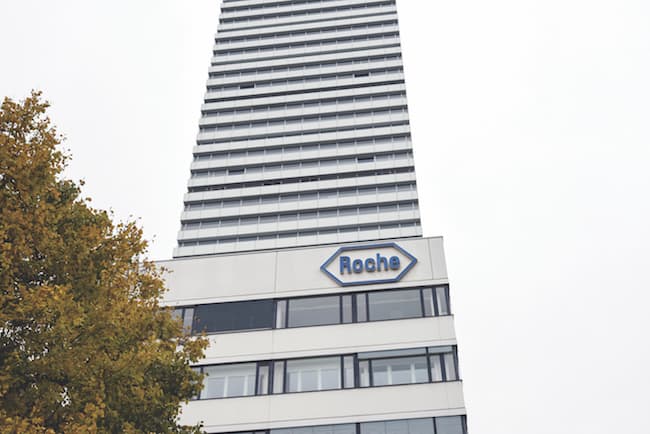
A fixed-dose combination of Roche’s HER2 drugs Herceptin and Perjeta has started a review at the US Food and Drug Administration (FDA), with a decision due by 18 October.
The co-formulation of two of Roche’s blockbuster breast cancer antibodies promises to make administration quicker and easier for patients, and could also help defend the company’s HER2 franchise from encroaching biosimilars.
The combination of Herceptin (trastuzumab) and Perjeta (pertuzumab) can be administered by subcutaneous (SC) injection in minutes, compared to hours with intravenous (IV) administration using the current single-agent formulations, says Roche.
The FDA review is based on a phase 3 trial called FeDeriCa, which showed that the combination was non-inferior to the two drugs given separately when it came to achieving therapeutic levels in the blood in HER2-positive breast cancer patients. It also matched the safety and efficacy of the current formulations when given alongside chemotherapy.
At the moment, Herceptin and Perjeta therapy requires a 150-minute infusion to provide a loading dose, followed by 60- to 150-minute maintenance doses, but the new format takes eight minutes for loading and five minutes for maintenance.
“SC administration has been shown to be strongly preferred by the majority of patients compared to IV administration of the same medicine, with the most common reason being that administration required less time in the clinic,” said Roche in a statement.
The Swiss drugmaker already has an SC version of Herceptin monotherapy on the market, but that hasn’t on its own stopped biosimilars of the drug eating into market share. Last year, sales of Herceptin were flat overall at around $7bn, but fell 16% in Europe and Japan as biosimilars started to gather momentum.
The product managed a 9% gain in the US market, which accounts for around 50% of the product’s sales, but for most of 2019 there was no biosimilar competition in that market and sales erosion is expected to gather pace this year.
Amgen launched its Kamjinti there in July, with Biocon and Mylan reaching the market with their Ogivri biosimilar in December, and others are in the latter stages of regulatory review.
Perjeta has been growing strongly – rising a third to $2.8bn last year – thanks to data showing it improves the efficacy of Herceptin when used in combination.
It remains in patent until 2023 in Europe and 2024 in the US, so Roche is hoping the ease of administration of the fixed-dose combination will discourage patients from using the IV formulation of the drug alongside a Herceptin biosimilar.




